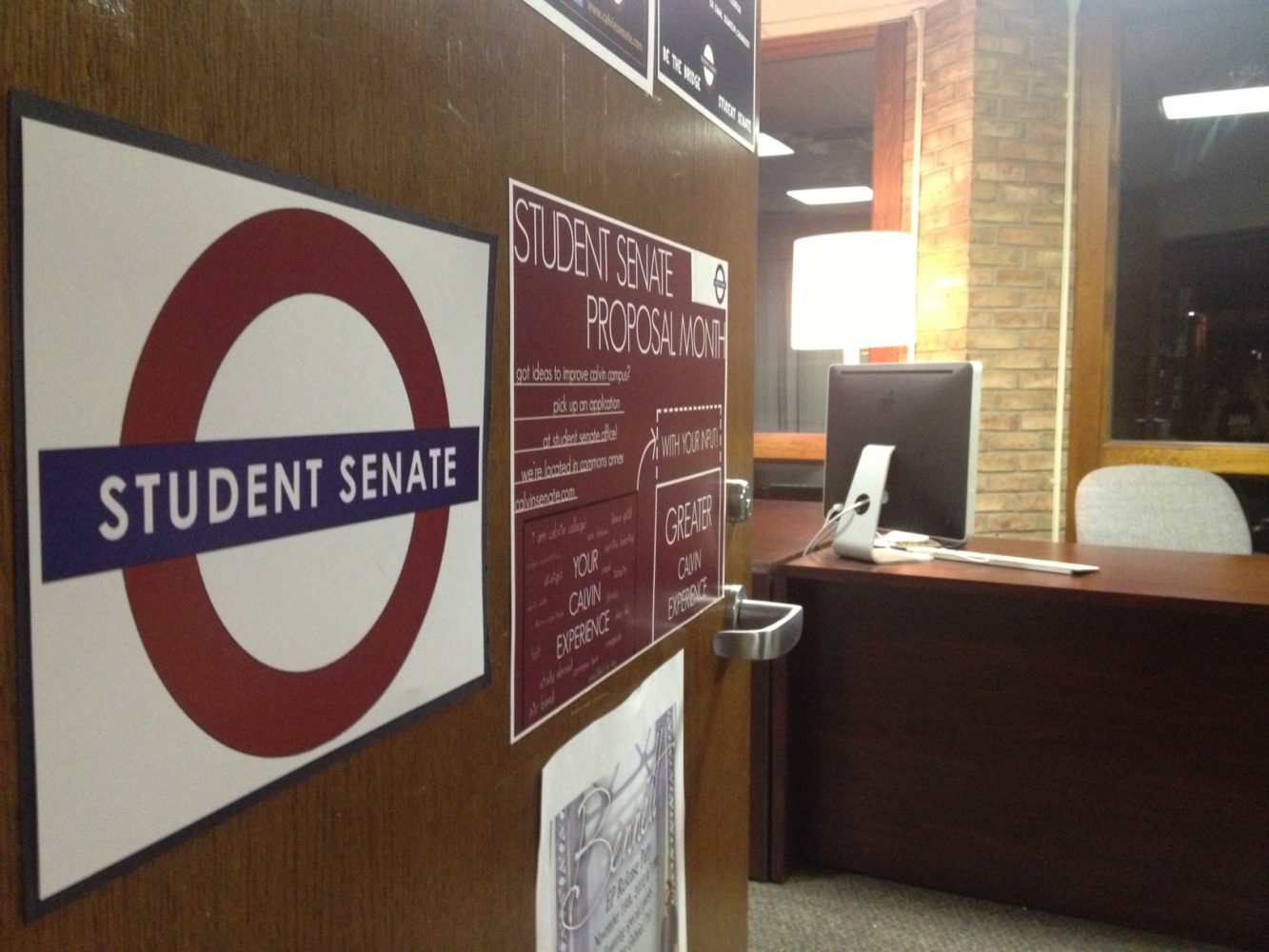After the first year of a new approach to student governance, the governance committee at Calvin honored all student representatives with an end-of-the-year banquet.
Provost Claudia Beversluis commended the students, calling them “group of people who make things happen.”
This year, Josiah Sinclair, the executive vice president of student senate, has worked to expand student involvement on governance committees and to make that involvement more effective.
Student senate has placed a higher goal on governance, initiating training sessions as well as banquets to connect committee members. “Our goal has been to build a sense of community, a culture of representation at Calvin College,” Sinclair said.
“It’s not always easy being 20 years junior to the next youngest member of the committee,” Sinclair said, but he emphasized the unique position of students. “Everyone else has been appointed,” he said. “You volunteered.”
Previously, student senators were the only students who served on governance committees, but this year, any interested student could apply with a resume and cover letter. A new senate cabinet position, vice president of representation, facilitated and encouraged student involvement.
“Rather than appointing already fully committed senators to serve on committees that likely didn’t have anything to do with their interests, senate began the far more challenging and rewarding task of seeking out students to match the committees,” Sinclair said.
“Whether your passion is gender equity, environmental sustainability, improving chapel, speaking into the vision of the college or rewriting Calvin’s core, there is a committee for everyone,” Sinclair said.
Calvin has about 30 governance committees, running everything from off-campus programs to scholarships and financial aid. Though the committees are made up of Calvin faculty and staff, most also have a spot for a student representative. Depending on the committee, the student may be a speaking member or an equal voting member.
Newly-elected Vice President of Representation Connor Schmidt wanted to affirm that students “do have a say” in policy at Calvin.
Students serve on nearly every committee, and are involved on almost every level of planning at Calvin. They participate in committees like the crucial planning and priorities committee, which evaluates which programs most effectively complete Calvin’s vision and will make tough decisions about which programs to keep and which to cut.
There are even “instances of students at Calvin writing Calvin College policy,” Sinclair said.
Senior David Witwer, who served the year on the educational policy committee, says whether it’s a communications professor being more able to speak to a communications proposal, or an English professor who understands the English department, “everyone has a certain specialty.” As a student, he said his input is considered very valuable as he “brings student culture and student opinion” to the debate.
Witwer was part of the discussion that formally defined a credit hour, which could have implications for how courses are evaluated. The proposal he worked on will be brought to faculty senate on Monday night.
Schmidt wants to continue senate’s commitment to governance next year. “I want to focus on informing students on what’s going on,” he said. “Governance representation is strong, but not many students know about it.”
He will likely have help from newly-elected Student Body President David Kuenzi and his running mate Alicia Smit, who have both served on governance committees. The team ran with governance as a major part of their platform.
“We want people to be excited about governance appointments,” Kuenzi said. “Right here is where the voice of Calvin College goes on.”
Graduating seniors who have served on governance committees were also awarded special graduation tassels in recognition of their service.








